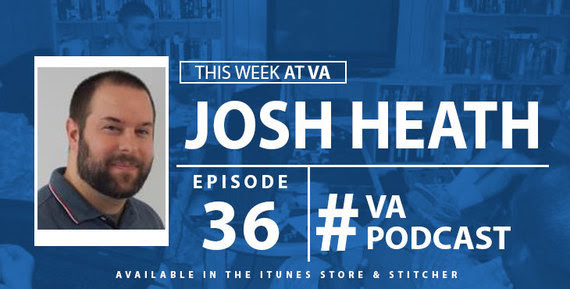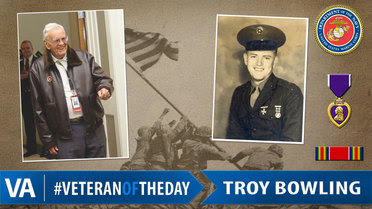
The Office of Health Equity champions health equity issues for vulnerable Veteran groups including LGBT Veterans. Many LGBT Veterans experience stigma and disparate health outcomes. In recognition of the health and social challenges faced by LGBT Veterans, OHE has sought to improve healthcare and wellbeing by:
|
- Advocating for the services and healthcare needs for LGBT Veterans;
- Coordinating VA participation in the Healthcare Equality Index sponsored by the Human Rights Campaign from 2013-2016;
- Providing subject matter expertise and serving on the committee to develop VA’s recently released, first-ever handbook to improve the experience of transgender employees at the VA to transition at work;
- Leading cutting edge research on health disparities in transgender Veterans; and
- Providing subject matter expertise in the development of sexual orientation and gender identity data fields in the VA electronic health record to better identify and address the care needs of LGBT Veterans.
Resources

Chronic Health Conditions among Vulnerable Veterans: Current Research and Action
Thursday, June 29th, 2017
3:00 – 4:00 PM (EST)
Event Description
- The Obesity Epidemic in the Veterans Health Administration: Prevalence Among Key Populations of Women and Men Veterans (April 2017)
- Racial and Ethnic Disparities Persist At Veterans Health Administration Patient-Centered Medical Homes (June 2017)
Panelist will discuss the following: 1) demographic variability in the prevalence of chronic health conditions and disparities among Veterans using primary care in VHA; 2) recent efforts in using VA data to systematically characterize health and healthcare disparities in VA for vulnerable Veteran groups; 3) the potential for the patient-centered medical home to identify and reduce disparities; and 4) operational and research partnerships executed by the Office of Health Equity to advance the goals of the VA Health Equity Action Plan.
Confirmed Speakers
- Jessica Y. Breland, PhDVA Palo Alto Healthcare System, Palo Alto, CA
- Donna L. Washington, MD, MPHVA Greater Los Angeles Healthcare System, Los Angeles, CA
- Uchenna S. Uchendu, MDChief Officer, Office of Health Equity, Washington, DC
Background Resources
- Breland JY, Phibbs CS, Hoggatt KJ, Washington DL, Lee J, Haskell S, Uchendu US, Saechao FS, Zephyrin LC, Frayne SM. (2017). The Obesity Epidemic in the Veterans Health Administration: Prevalence among Key Populations of Women and Men Veterans. Journal of General Internal Medicine, 32(1):11-17.
- Washington DL, Steers WN, Huynh AK, Frayne SM, Uchendu US, Riopelle D, Yano EM, Saechao FS, Hoggatt KJ. (2017). Racial and Ethnic Disparities Persist At Veterans Health Administration Patient-Centered Medical Homes. Health Affairs, 36(6):1086-1094.
July’s Focus on Health Equity and Action Cyberseminar session spotlights the EMPOWER research project, and the Make the Connection video project targeting vulnerable Veteran groups.
Using Effective Communication of Healthcare Disparities and Vulnerabilities to Empower Professionals, Veterans and Stakeholders
Thursday, July 27, 20173:00 – 4:00pm EST
Panelist will discuss the following:
- Key findings of the EMPOWER project which was designed to understand how to effectively communicate with healthcare professionals about healthcare disparities;
- Using tailored peer to peer Veteran stories of recovery to connect Veterans, family members, friends, and other supporters with information, resources, and solutions to issues affecting their lives; and
- Operational and research partnerships executed by the Office of Health Equity to advance the goals of the VA Health Equity Action Plan.
Confirmed Speakers
- Diana Burgess, PhD Health Science Researcher, VA Minneapolis Healthcare System, Minneapolis, MN
- Wendy Tenhula, PhD Deputy Chief Consultant for Specialty MH, VA Central Office, Washington, DC
- Uchenna S. Uchendu, MD Chief Officer, Office of Health Equity, VA Central Office, Washington, DC
Background Resources
The Office of Health Equity is committed to increasing the number of health professionals and stakeholders and competency to address the health equity needs of Veterans. Did you know that approximately two-thirds of physicians in the United States have trained at the VA? VA also sponsors approximately 10% of graduate medical training positions according to Darrell G. Kirch, MD, President and Chief Executive Officer of the Association of American Medical Colleges.
In his Foreword to the National Veteran Health Equity Report, Dr. Kirch describes OHE’s efforts to increase knowledge of Veteran health and equity issues as informing “the way the next generation of physicians thinks about equity and care for vulnerable patients.” With this in mind, OHE is pleased to share upcoming trainings and fellowships that will inform how successful we will be in reducing health disparities and achieving health equity.
2017 VA Diversity and Inclusion Summit: Building the Workforce Pipeline of Tomorrow

The VA Office of Academic Affiliations (OAA) will host VA’s inaugural Diversity Summit on June 28-29, 2017 at the Meharry Medical College in Nashville, TN. The summit’s theme is “Building the Workforce Pipeline of Tomorrow” and it will commence at the conclusion of the Empower2 Conference; a national meeting for those historically black colleges and universities (HBCUs) that have health professions education programs.
The summit’s purpose is to strengthen VA’s valued relationships with the HBCU community. HBCU attendees will have a venue to explain the obstacles experienced by their schools while working with VA. VA will provide summit participants with additional information on its health professions training mission and identify additional partnership opportunities. This meeting will further provide OAA with the opportunity to identify the best approaches to ensuring appropriate and consistent outreach to all HBCU health professions schools. VA intends to listen and prioritize solutions to the concerns identified at the summit.
Office of Health Equity Chief Officer Uchenna S. Uchendu served on the planning committee and will be moderating and participating on a panel at the event (11:00am – 11:45am, Veteran Diversity, Equity, Demographics and Opportunities).
|
Leaders for Health Equity Fellowship Program

Photo Caption: Inaugural Class of the Leaders for Health Equity Fellowship Program (2017)
Applications for the 2018 fellowship program are currently being accepted from June 1, 2017 to July 15, 2017.
The Leaders for Health Equity (LHE) is a fellowship program offered by the George Washington University Health Workforce Institute through the generosity of the Atlantic Philanthropies. The vision of the program is to develop global leaders who understand the foundations of health inequity and have the knowledge, skills, and courage to build more equitable organizations and communities.
Fellows are selected from the United States and the developing world based on prior commitment in the area of health equity and demonstrated leadership promise. The program builds and supports a linked group of global multidisciplinary leaders equipped with the technical knowledge, skills, and network to advance health workforce equity in their communities, institutions, and professional circles. The program will select 10 U.S. and 5 international fellows per year. Apply for the fellowship at http://bit.ly/LHE2018.
Office of Health Equity’s Kenneth T. Jones, PhD (pictured above) is a member of the current and inaugural class of the LHE Fellow. As a part of his professional development experience in the fellowship, Dr. Jones is focusing on the development of a data visualization tool and maps that overlay Veteran clinical quality measures and community markers of social determinants of health at various geographic levels in order to 1) increase understanding of social determinants on Veteran health outcomes and 2) increase efforts to improve Veteran care.
Robert Wood Johnson Foundation Clinical Scholars Program
Applications for the Robert Wood Johnson Foundation (RWJF) Clinical Scholars Program will open in January 2018. The program provides funding and leadership training to clinically active providers to help leverage their ideas to improve health outcomes in communities across the country (http://clinical-scholars.org). Providers working in collaboration with veterans, their families, and local organizations are encouraged to apply.
The Clinical Scholars program provides funding and leadership training to clinically active providers with experience in providing healthcare services to children, adults, and families. Preferred applicants are engaged in their community and motivated to leverage their passion and ideas to improve health beyond the clinical setting. Fellows identify complex health equity issues further challenged by social, political, and environmental factors and propose novel interdisciplinary approaches to improve health beyond the clinical setting. Potential fellows apply in multidisciplinary clinical teams (> 2) and may represent the range of health affair professions: dentistry, medicine, nursing, pharmacy, physical therapy, social work, and/or veterinary medicine. The currently funded 2016 team projects are focused on a range of complex health issues: oral health, mental health and opioid abuse, behavioral health, immigrant health, community violence, and the foster care system (http://clinicalscholarsnli.org).
|


























No comments:
Post a Comment